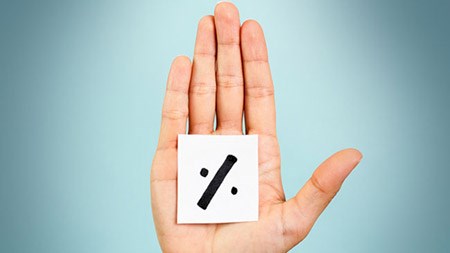2016 did not start well for South Africa. The rand hit new record lows, capital flight surged, credit ratings agencies warned of another potential downgrade and growth was slashed.
On the 28th of January, the South African Reserve Bank’s (SARB) Monetary Policy Committee (MPC) hiked the repo rate by 50 basis points to 6.75% which in turn pushed the prime lending rate – the figure charged by banks to customers - to 10.25%.
While the decision was expected to a degree, most pegged the interest rate increase at 25 basis points. The 50 basis points increase came as something of a shock and heralds yet another round of belt tightening for most South Africans.
Brian Butchart, Managing Director at Brenthurst Wealth shared his thoughts on the matter: “In South Africa, interest rates are typically raised in an attempt to curb inflation, attract investment and although denied by the SARB, to stabilise the currency. The interest rate cycle has been on an upward trajectory for more than two years now and is not likely to taper off thanks in large part to the drought and weak Rand which will propel inflation well over the 6% target band set by the SARB. As such, we fully expect more interest rate hikes throughout 2016.
“Although this news is welcomed by retirees and individuals with little or no debt who rely on their investment capital to produce a monthly income and can now expect higher returns from their interest bearing investment options, it isn’t the best news for those with debt and mortgage bonds. Indeed, for property owners, this will immediately translate into an increase in bond repayments and less disposable income.”
Against this backdrop, Butchart suggests fixing bond rates. He adds that bondholders would also do well to consider increasing bond repayments over and above the new required payment (if possible) which will reduce the capital balance in the long run.
“For those who wish to buy, it would be best to try and put together as big a deposit as possible which will reduce the overall loan value. Aspirant buyers should also shop around to secure the best possible lending rates and fixed lending rates with multiple financial institutions.”
READ MORE: Is an interest rate cut likely in 2018?
In the broader context, Butchart explains that interest rate increases will translate into fewer buyers being approved by financial institutions overall. He adds that buyers will probably offer less for higher priced properties but that demand for more affordable properties will probably remain fairly robust.
Magnus Heystek, Director and Investment Strategist at Brenthurst Wealth says the increased interest rate and the probability of further interest rate hikes later in the year will have a major dampening effect on the already fragile sentiment of aspirant property purchasers.
Interestingly, he adds that increased rates will also probably accelerate the downward trend in the size of property developments coming to market which could, as an aside, make an investment in storage units more attractive as people downscale but still want to keep their surplus belongings in one place.
Timothy Akinnusi, Executive Head of Home Loan Sales and Client Value Management at Nedbank says that the 50 basis point hike signals that the Reserve Bank views curbing inflation as a bigger consideration in comparison to managing consumer’s ability to service their debt.
Adds Akinnusi:
For both existing and new homes buyers, the message is to take a long term view on your purchase of a new residence and be prepared to pay at least 10 to 15% more than your current monthly bond amount by the end of the year. In so doing, bondholders will be able to mitigate the impact of additional interest rate increases.
Akinnusi points out that it’s not all bad news in that an increasing rate cycle presents opportunities for consumers to derive better returns on their savings.
John Loos, Household and Property Sector Strategist at FNB Home Loans believes higher interest rates are good for South Africa in the long term as it will assist in correcting various macroeconomic imbalances and would ultimately contribute towards a lowering of the household debt-to-disposable income ratio.
“Whether or not the interest rate will be increased gradually or quickly depends on several local and global factors,” notes Loos. “These include, amongst others, the price of oil, the inflation effect of the drought which has yet to fully filter through, the upcoming municipal vote which may cause further social unrest, potential disruption and possible Rand volatility and the impact of China’s slowdown.
“Whatever the case, everything points to a tough year ahead. As the saying goes things will probably get worse before they get better so if you haven’t done so already, now would be a good time to re-evaluate your financial situation and cut back as far as possible in anticipation of cost increases across the board.”
For more on the effects of rising interest rates on property or to view all properties for sale peruse our comprehensive listings or read on for more information.




